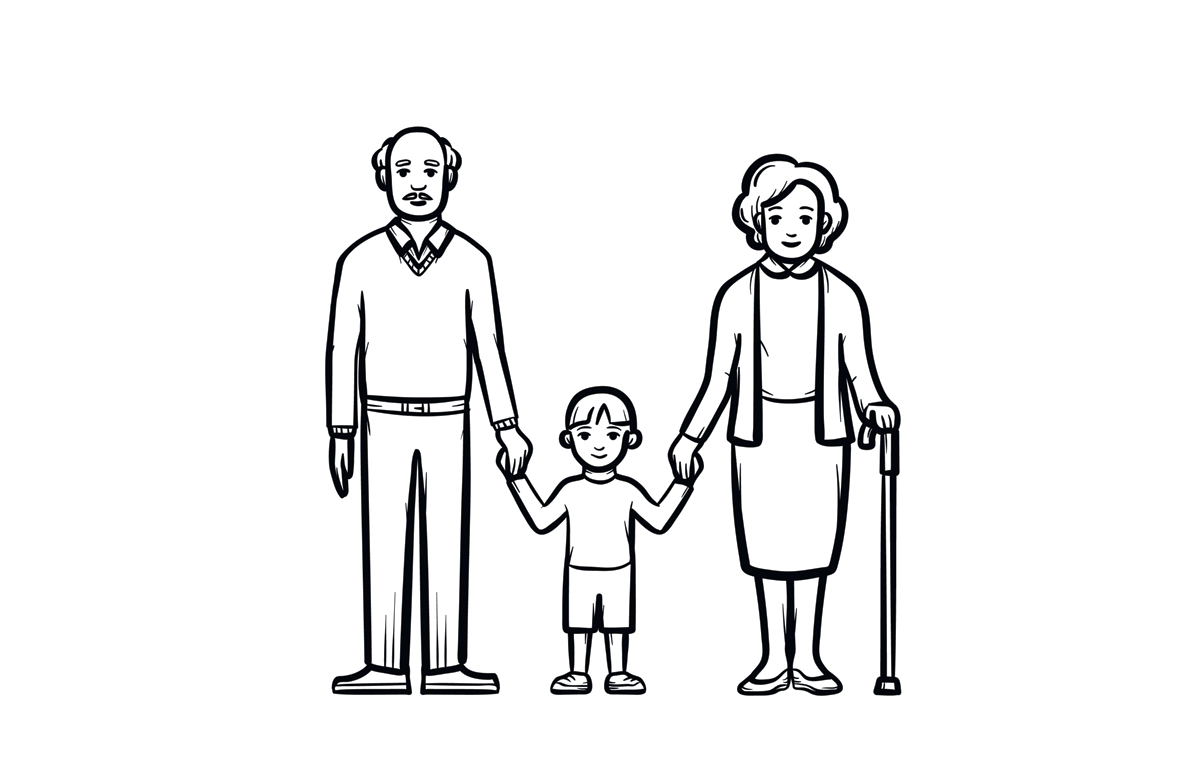Exes? No, Co-Grandparents
After a divorce, one couple navigates the roles of grandparents in a unique way
Divorces have a way of creating a snowball of effects beyond a fractured relationship. If the parties involved had children, things are often messier, and if those children also had children, the divorcees no longer face only the challenges of being exes and parents, but also of being grandparents.

Naturally, grandparents under these circumstances might have to interact and — depending on their locations — see each other at holidays or birthday parties. It could be many years since they last had to see one another or communicate. Jennifer Taitz, a clinical professor of psychiatry at UCLA, recently presented an interesting interpretation of how this conundrum could play out for some divorced grandparents: co-grandparenting.
One Family’s Story of Co-Grandparents
In a column for The New York Times, Taitz told her own family’s story. Her parents divorced when she was in elementary school and didn’t exactly have the most amicable split.
“For years, my parents’ contact was limited to kid-related events, like parent-teacher conferences,” Taitz wrote. “Yet their tension remained, my mother occasionally whispering damning words about my father within earshot, inevitably beginning with ‘He never…’ For his part, my father would more directly and angrily announce, ‘Your mother always…’”
But when Taitz's first child Sylvie came into the world, she “became the first person to truly bring [Taitz’s] parents into a respectfully shared territory in decades.” Things changed between Taitz's parents — slowly.
It wasn’t a seamless transition. At first there were glares, insults and passive-aggressiveness, but eventually to the author’s amazement, the article noted, “the tension between [her] parents began to abate, particularly when they both zoomed in on Sylvie, a magnet with her bright red hair and contagious giggle.”
Taitz eventually had a second child and moved from New York to Los Angeles where her parents lived.
The light that their grandchildren brought into the world seemed to minimize the disdain the former couple had toward one another. Jo and Emanuel began to coexist peacefully and even made kind gestures to one another. They cordially spent the same holiday together with the grandchildren, and Taitz’s father purchased her mother a ticket for a benefit at Sylvie’s school. They began to work together not as a couple, but as grandparents.
Exposure Therapy?
Non-traditional relationships like these are not realistic for everyone, but it’s a unique and thought-provoking concept that got Taitz thinking about how her parents were able to fall into a working co-grandparenting relationship.
“As a psychologist, I know about the profound therapeutic impact of exposure therapy — when a person chooses to repeatedly face an uncomfortable stimulus rather than avoid it,” she wrote. “For example, if someone hates public speaking, rather than dodging opportunities to grab a microphone, she would actively pursue chances to perform.”
Was exposure therapy at work here? Maybe. But it's impossible to say for certain whether forced discomfort could ultimately turn positive for every divorced couple. What worked for Taitz’s parents is somewhat miraculous and definitely won’t bring every family together in the same way, but perhaps the moral is: If we all strive just a little more to meet each other halfway, there’s a lot to gain. Especially for those grandchildren.


